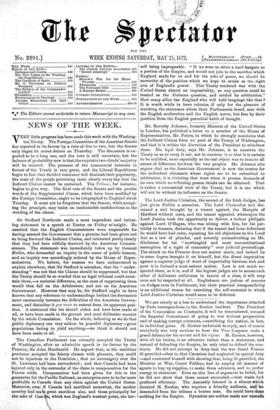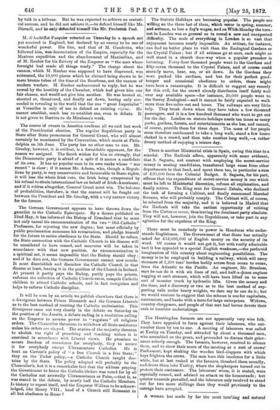We are utterly at a loss to understand the importance
ittachei by Paris correspondents to the Rouher incident. The President of the Commission on Contracts, it will be remembered, accused the Imperial Government of going to war without preparation and of making corrupt contracts,—sacrificing the nation, in fact, to individual gains. M. Rouher undertook to reply, and of course everybody was very anxious to hear the Vice-Emperor make a grand defence for his master and his re'yime. M. Rouher, however, with all his brains, is an advocate rather than a statesman, and instead of defending the Empire, he only tried to defend the con- tracts. He did not attempt to deny that the war found France ill-provided--that is, that Ccenkrism had neglected its special duty —and contented himself with showing that, being ill-provided, the Minister at War, Count Palikao, had to employ all manner of agents to buy up supplies, to make them advances, and to. prefer energy to character. Even on this line of argument he failed, for he did not show that these means succeeded,—that waste had produced efficiency. The Assembly listened in a silence which daunted M. Rouher, who requires a friendly audience, and le descended from the tribune a beaten man. He could have done nothing for the Empire. Dynasties are neither made nor unmade
by talk in a tribune. But he was expected to achieve an oratori- cal success, and he did not achieve it,—to defend himself like Mr. Disraeli, and he only &fended Cassel! like Mr. Bredeeinir Peel.



































 Previous page
Previous page